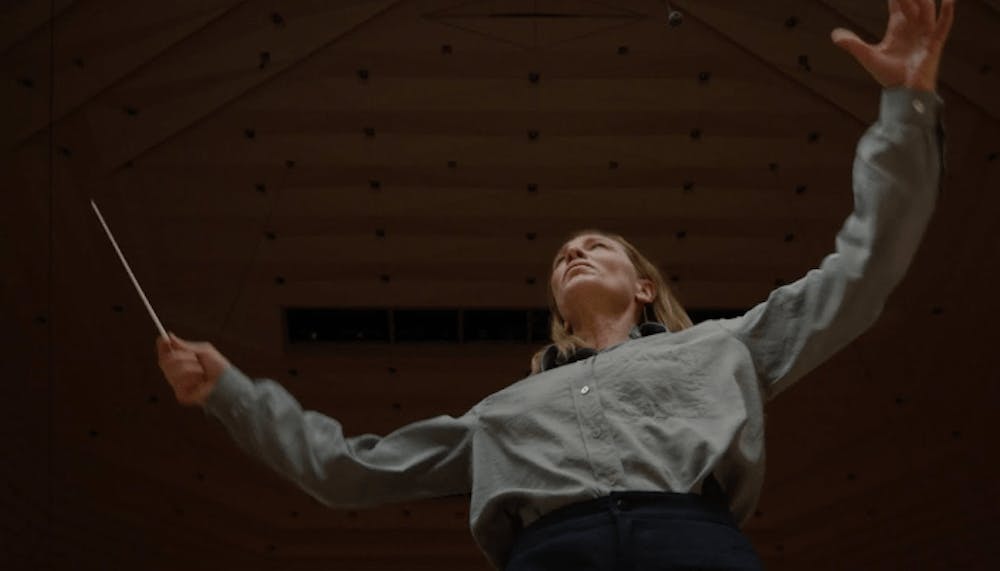At the 2023 New York Film Critics Circle Awards, Martin Scorsese made one of his regular pronouncements on the state of cinema when he presented writer-director Todd Field with the Circle’s Best Film award. “The clouds lifted when I experienced Todd’s film, ‘Tár,’” Scorsese said. Referencing an earlier comment in which he asserted that the cinematic art form has fallen upon “dark days,” Scorsese’s statement is based on his conviction that modern films are guilty of babying the audience, ferrying them through narratives beat by beat without leaving any space for individual viewers to form unique attachments to a film. “Tár,” he claims, does not do this, a refusal to coddle that grants the film its salvational status for an embittered cinema devotee like himself. Does Scorsese, who once likened Marvel movies to theme parks, have a point this time? That depends on whether you accept the notion that expertly dealing in ambiguity, even at the price of emotionally distancing its audience, makes “Tár” ideal cinema.
Despite widespread confusion that its titular character is a real-life figure, Field’s film tells the wholly fictional story of Lydia Tár (Cate Blanchett), a brilliant and world-renowned musician who has achieved the distinction of being the first female conductor of the prestigious Berlin Philharmonic. In the film’s opening scene, Tár takes the stage before a packed auditorium to be interviewed for a profile in The New Yorker. It is reasonable to assume that as the moderator reads her illustrious resume and questions her on her process as a conductor, and Tár responds with poise and intelligence, those in the crowd must perceive the woman’s station in life as dangerously enviable. But for any discerning attendees paying close attention to Tár, a barely perceptible wince at a harmless joke made by the moderator at her expense suggests something upsetting dwelling beneath the veneer of her accomplishments. This latent darkness is what “Tár” digs at throughout its nearly 160-minute runtime, raising issues of abuse, corrupting power and the thin line between genius and insanity to the surface of this uniquely 21st-century psychodrama.
The film is certainly one of the chillier contestants in this year’s best picture race. Dismissing even the faintest trace of melodrama, Todd constructs a narrative out of ordinary events in the life of an eminent composer-conductor. There are interviews, rehearsals, classroom lessons and even scenes of Tár jogging and driving her daughter to school. Most of these scenes are lengthy and dialogue-intensive, and all of them are shot primarily with a static camera and feature little to none of Hildur Guðnadóttir’s original score. The result of such a minimalist approach by Field is that his film never raises the heart rate like a more narratively adventurous or emotionally direct movie likely would. This is not to say that “Tár” is dull. The coolly filmed, seemingly unremarkable scenes of Tár going about her life that make the film feel aloof are also what make it so rife with tension. Knowing that something is not quite right with Tár, we observe each of her daily interactions with the anxious expectation for her to break the tranquility of the scene and shatter her pristine public persona. Field’s unflinching camera, restrained use of music and staunch refusal to provide easy answers about his protagonist deepen this anxiety, and as the film progresses, he suspends us in an exciting state of anticipation.
This isn’t really Todd Field’s film, though. He may have the producing, writing and directing credits, but if people are still talking about “Tár” in twenty years, it will be because of the lead performance by Cate Blanchett. She is absolutely commanding as an enigmatic titan of classical music. Certain flourishes, such as the nervous tics she exhibits before taking the stage, have likely already secured her Oscars gold. But for most of the film, it is nothing more than simply speaking that solidifies Blanchett’s performance as a great one. Field’s script is exceedingly articulate, and Blanchett delivers her sprawling passages of dialogue so smoothly and with such confidence in her words that she elevates Tár to an unarguable position of power. The actress conveys her character’s dominance most memorably in an early scene that finds Tár engaged in a one-sided argument with a student over the merits of Bach. With irrefutable logic and piercing wit, she mercilessly deconstructs the student’s qualms about the famed German composer, a verbal takedown that strands us somewhere between pitying the student and bursting into applause for Blanchett.
Take her performance, add to it a tense atmosphere and an unpredictable storyline, and does the sum make “Tár” the burst of cinematic sunshine that Scorsese says it is? Not really. It’s a challenging, mostly entertaining movie, and the “Goodfellas” director is right to champion it in hopes of earning it a wider audience. But 2022 gave us “Top Gun: Maverick,” “All Quiet on the Western Front,” “The Batman,” “The Fabelmans” and “The Banshees of Inisherin” to name a few. If that’s a year of “dark days” for cinema, we’re going to need something brighter than “Tár” to save it.
Jack Torpey '24 (he/him) is an Arts and Culture Editor. He writes film reviews for the Reel Critic column.
Jack is studying English with a minor in Film and Media Culture. Outside The Campus, he works as a peer writing tutor at the Writing Center and is a member of the Middlebury Consulting Group.




